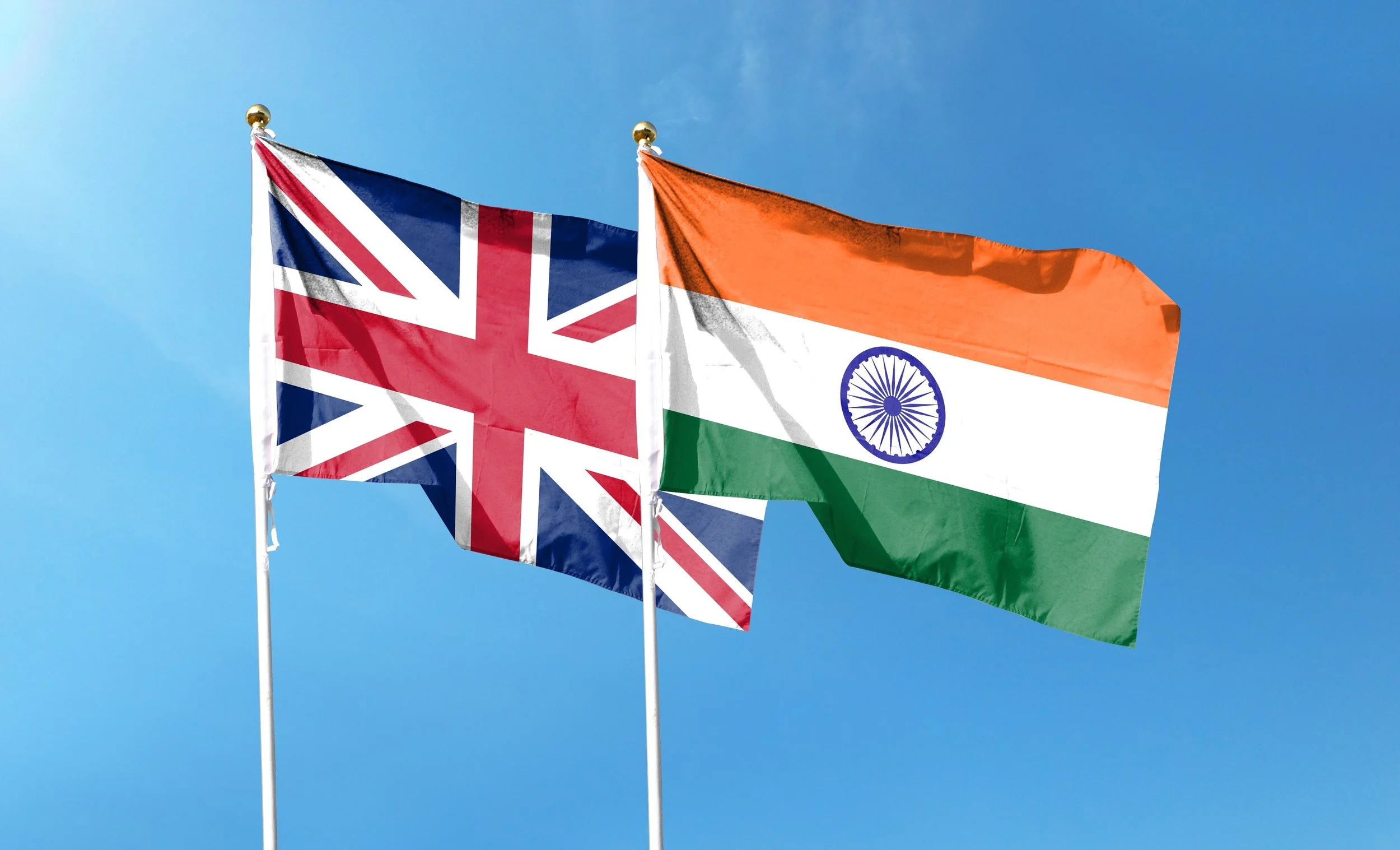Businesses welcome India trade deal, but greater gains to be found closer to home
The “historic” free trade agreement is expected to add £4.8 billion to UK GDP.
UK Prime Minister Keir Starmer and Indian Prime Minister Narendra Modi have signed a free trade deal between the two countries.
As trailed when first announced back in May, the deal will result in a significant reduction in tariffs on a wide range of goods traded between the UK and India. Indian levies on British goods exports will fall from 15% to 3% on average. Whisky tariffs have been reduced from 150% to 75%, and will drop further in years to come, reaching 40% by 2040. The UK Government estimates that as a result of the deal, UK exports to India will increase by 60%, and bilateral trade by 39%, by 2040.
While the headline reductions in tariffs have been welcomed by businesses, some thorny aspects of the deal are still to be negotiated. These include a Double Contributions Convention (DCC), an agreement by which Indian and British workers should not expect to pay national insurance contributions in both home and host countries. The two sides have published side letters stating their intention to negotiate terms of the DCC and for it to come into force at the same time as the trade agreement. The UK Government has been at pains to point out that British workers would not be at risk of being undercut in favour of Indian workers as a result of the deal.
Likewise, discussions around a future carbon border tax are yet to conclude. India has previously sought an exemption from the UK’s planned Carbon Border Adjustment Mechanism (CBAM). The UK’s CBAM is scheduled to come into force from January 2027, however as part of its deal with the European Union, the UK announced plans to link its emissions trading scheme with that of the EU.
The deal is expected to add £4.8 billion to UK GDP in the long run. While the Government is right to welcome the announcement, £4.8 billion equates to just 0.1% of GDP. This is not a surprise, since trade increases with proximity. At present India accounts for less than 2% of UK trade, and even with the large increases now anticipated, it will remain a relatively small market for most UK exporters.
Far bigger gains for the UK could be generated by removing barriers to trade with the European Union, which accounts for roughly 50% of UK trade (48% of UK exports, 53% of UK imports). Independent analysis has found that aligning with EU standards on goods and services could add up to 1.5% to UK GDP in the long run, even accounting for US tariffs continuing to be levied.
The UK-India deal was accompanied by a Comprehensive Strategic and Defence Partnership, “which will see closer collaboration on defence, education, climate, technology and innovation”, and investments worth almost £6 billion pounds, in sectors ranging from aerospace to carbon capture.
The deal is expected to come into force in the second half of 2026, once it has been scrutinised and ratified by the UK Parliament.

